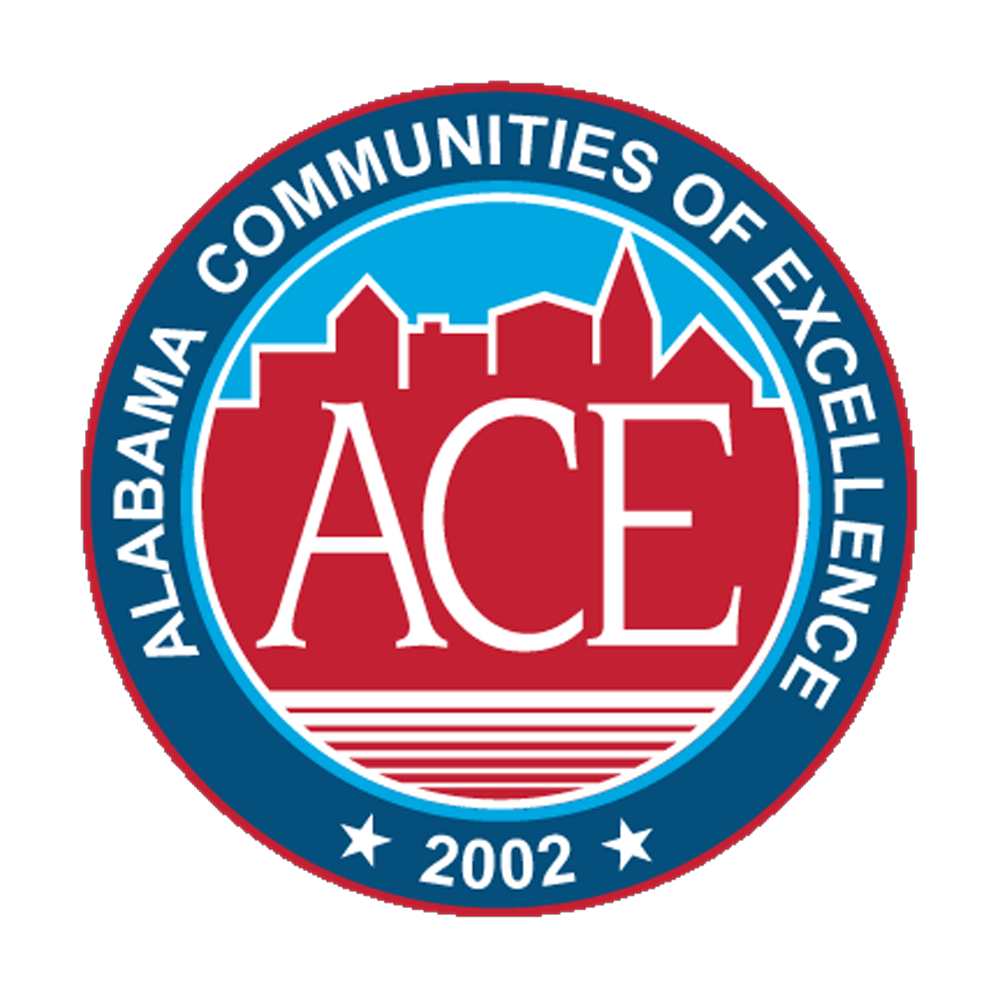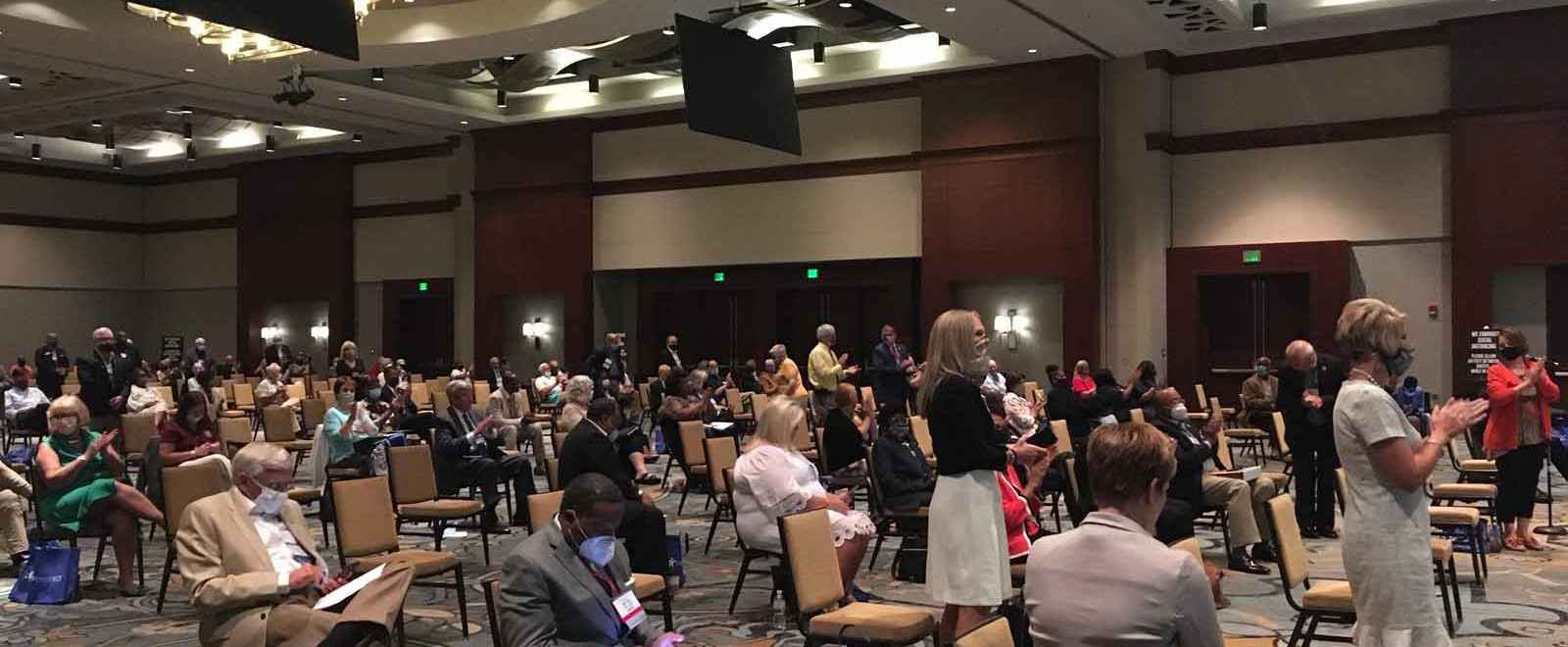The Alabama Communities of Excellence (ACE) announced Boaz and Center Point have earned the designation of an “Alabama Community of Excellence” Thursday, July 23, 2020 at the Alabama League of Municipalities Annual Convention, held in Montgomery, AL. Hartselle was recertified in the ACE program.
The graduation of Boaz and Center Point brings the total number of Alabama communities that have achieved designation as Alabama Communities of Excellence to 41. These communities include: Alexander City, Arab, Atmore, Bay Minette, Boaz, Brewton, Center Point, Childersburg, Demopolis, Elba, Eufaula, Evergreen, Fairhope, Fayette, Foley, Geneva, Graysville, Guin, Gulf Shores, Guntersville, Haleyville, Hanceville, Hartselle, Headland, Heflin, Helena, Jackson, Jacksonville, Jasper, Leeds, Livingston, Millbrook, Monroeville, Montevallo, Oneonta, Rainsville, Saraland, Spanish Fort, Tallassee, Thomasville, and Valley. Other communities currently in the process of working through the ACE program inclulde: Abbeville, Chelsea, Florala, Gardendale and Red Bay.
Councilman Johnny Willis of Boaz, Mayor Tom Henderson and Councilman Bobby Scott of Center Point, and Mayor Randy Garrison of Hartselle, and other community representatives were recognized Thursday for their ACE designation and recertification. Each city received a plaque and signs to be displayed in prominent locations within their communities. To be designated as an ACE community, they must successfully complete the comprehensive three-phase approach to economic and community development. ACE communities are eligible for recertification after three years in the program to show they are maintaining the ACE standards. “We commend the leadership and many stakeholders of the designated communities for their dedication to ensuring long-term economic success for their communities through the Alabama Communities of Excellence process,” said ACE President and Chairman of the Board, Brandon Bias.
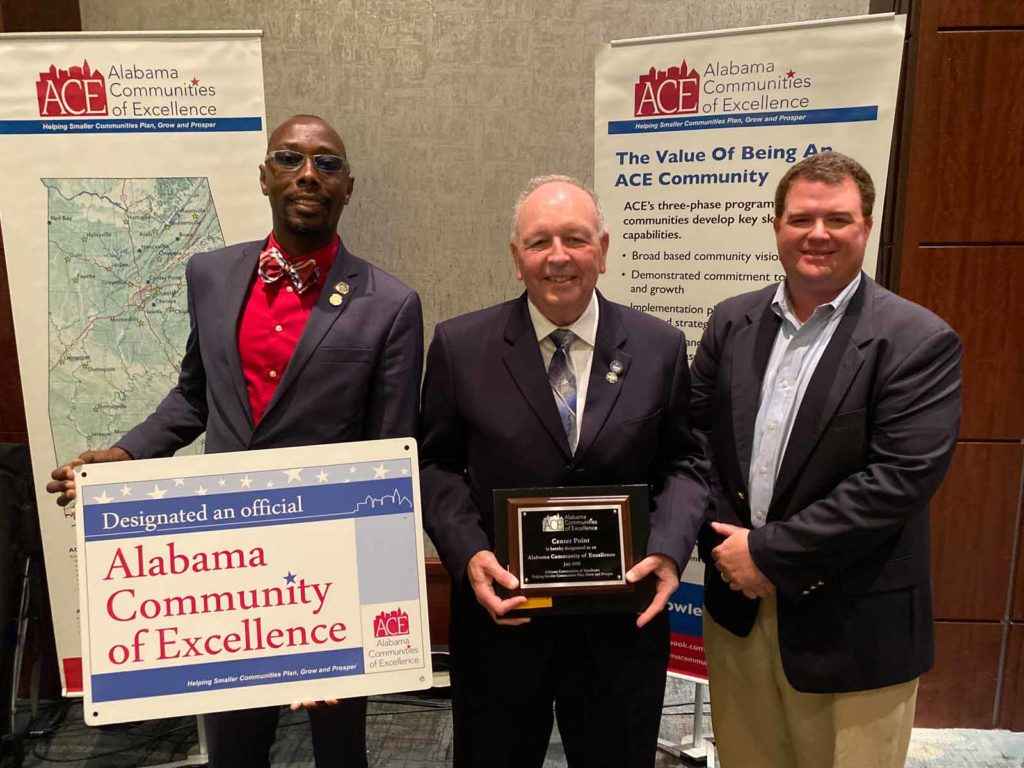
Left to right, Center Point Councilman Bobby Scott, Mayor Tom Henderson
and ACE President Brandon Bias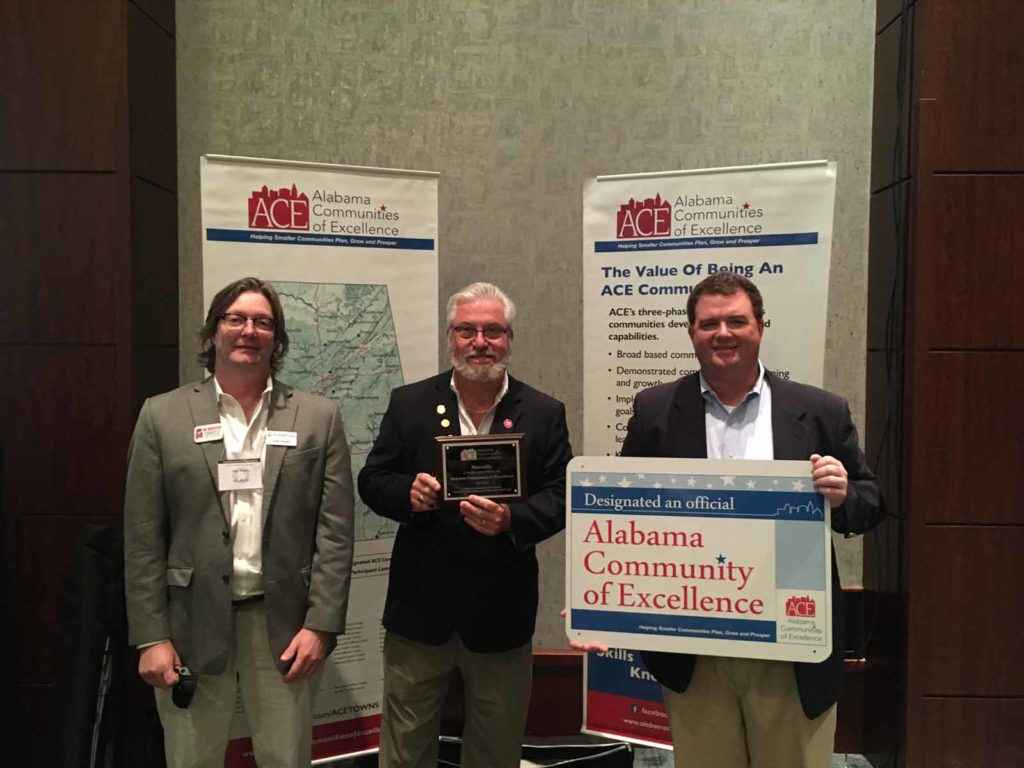
Left to right, Joey Hester, ACE Captain, Hartselle Mayor Randy Garrison,
and ACE President Brandon Bias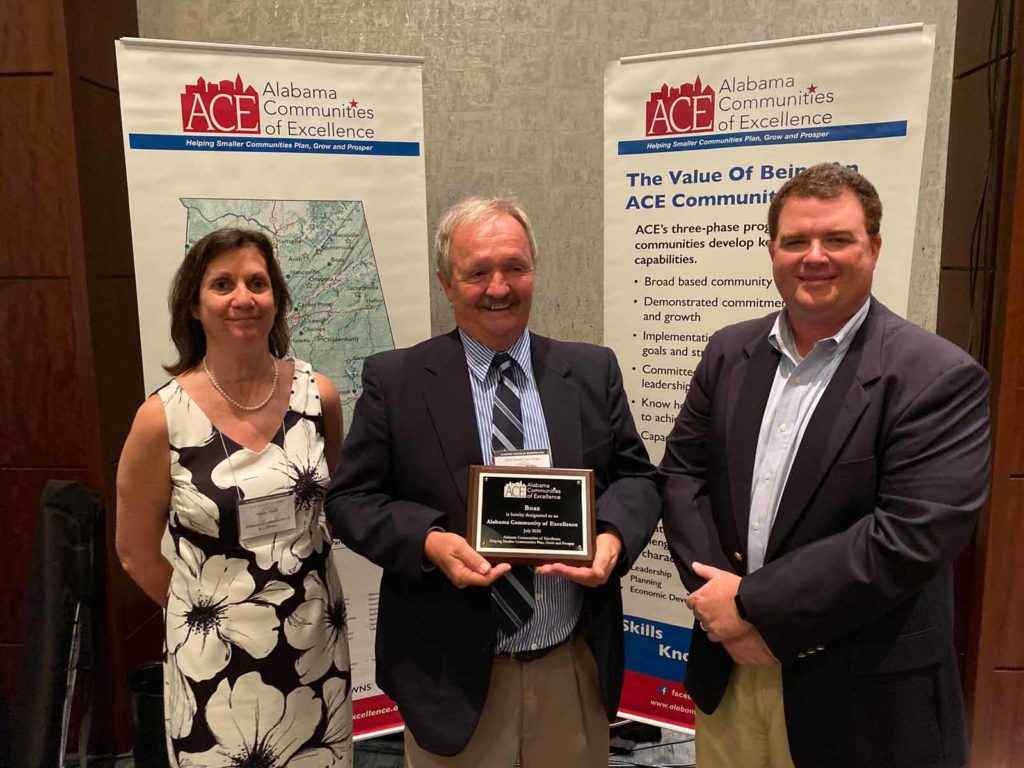
Left to right, Mary Shell, ACE Executive Director, Boaz Councilman Johnny Willis,
and ACE President Brandon Bias
ACE Communities are recognized during the socially distanced League of Municipalities conference in Montgomery on July 23, 2020.
ACE appreciates the League’s partnership and commitment to the ACE program.
Additionally, ACE announced they will be accepting applications for a 2020 class. To apply, communities with eligible populations complete a competitive application process to be considered for the ACE program. The two main criteria used in selecting ACE participants are 1) the level of local commitment to the ACE program, and 2) the community’s capacity to support the ACE program. ACE strives to guarantee widespread geographic coverage across Alabama.
The ACE program offers a systematic three-phase approach with technical resources and the tools needed to help Alabama’s small towns foster growth and prosperity by focusing on their distinctive assets and resources. The ACE comprehensive program includes: Phase I, known as the assessment phase. During this time, a comprehensive report card detailing community assets and weaknesses will be prepared by an ACE Team and presented to the community along with recommended strategies and actions.
During Phase II, the Leadership Development and Strategic Planning component, each community must establish a leadership development program, prepare an up-to-date strategic plan, and identify a local nonprofit development organization.
Phase III is the Implementation and Comprehensive Planning segment. Issues addressed during Phase III include comprehensive planning, commercial business development, education enhancement, infrastructure, health and human services, retiree attraction, tourism, economic development, and quality of life.
Throughout each of these phases, ACE Partners work with each community to successfully achieve their goals. “The ACE program would not be possible without the financial support and expertise provided by our partners. We thank all of our partners that range from state agencies and associations to banks, utilities, universities and others – to foster unique community development programs to assist smaller towns to plan, grow and prosper” remarks Brandon Bias at the Alabama League of Municipalities Annual Convention.
The ACE Partner organizations for 2020 include: Alabama Department of Commerce, Alabama Department of Economic and Community Affairs, Alabama League of Municipalities, Alabama Mountain Lakes Tourist Association, Alabama Municipal Electric Authority, Alabama Power Company, Alabama Small Business Development Center Network, Auburn University – Government and Economic Development Institute, Byard Associates, LLC, David Mathews Center for Civic Life, Goodwyn, Mills and Cawood, Inc., Jacksonville State University, Regions Bank, Spire, The University of Alabama Center for Economic Development, The University of West Alabama, and the United States Department of Agriculture – Rural Development (USDA-RD).
ACE was created in 2002 as a 501(c)(3) non-profit corporation organized to provides technical assistance to select communities with populations ranging from 2,000 to 18,000 that helps to strengthen the communities’ long-term economic success. This year marks 18 years of ACE providing the resources and knowledge for small communities across the state to focus on the importance of planning, leadership development and broad-based community engagement. Community leaders are provided with training and workshops to develop vision and mission statements, implementation strategies and a sustainable leadership development program. ACE assigns each community with a team of experts from the ACE Associates Council that guide them with an implementation strategy as they work through the program.
ACE principles include the active involvement by community stakeholders across a broad demographic spectrum coupled with development of local leaders and leadership capacity and an emphasis on the importance of developing and implementing short- and long-term plans to further the realization of the municipality’s vision.
